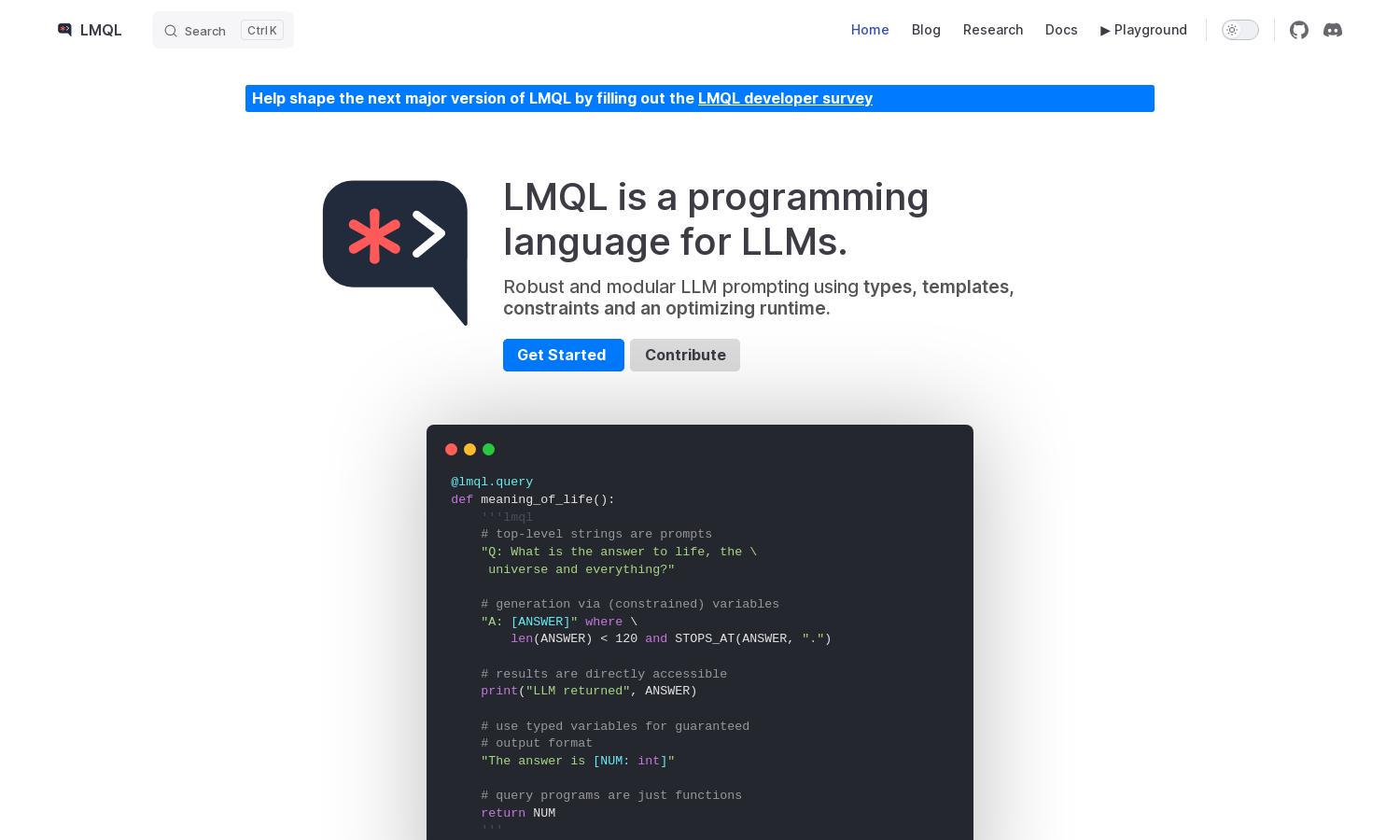LMQL

About LMQL
LMQL is an innovative programming language designed for developers interacting with language models. It allows users to create modular, efficient prompts with types and templates, enhancing the flexibility and effectiveness of LLM querying. With LMQL, users personalize AI interactions, optimizing performance in creative and educational contexts.
LMQL offers a flexible pricing model suitable for various users. Each tier presents unique benefits, enhancing AI prompt generation capabilities. Explore options that provide comprehensive access to advanced features, ensuring optimal performance. Upgrading grants users greater efficiency and enhanced tools to maximize their experience with LMQL.
The user interface of LMQL is designed for simplicity and efficiency, providing an intuitive layout that enhances the user experience. With streamlined access to key features and straightforward navigation, users can swiftly craft prompts and manage queries with ease, making LMQL a user-friendly tool for developers.
How LMQL works
Users interact with LMQL by signing up and accessing its robust features for language model querying. After onboarding, they can create modular prompts using Python-like syntax, implement constraints, and utilize nested queries. The platform is designed for ease of use, enabling developers to enhance AI interactions efficiently.
Key Features for LMQL
Modular Prompting
LMQL's modular prompting feature allows users to construct flexible queries easily, promoting reuse and creativity. This unique capability facilitates enhanced interactions with language models, empowering developers to write more efficient and effective code within the LMQL environment, ultimately improving the querying experience.
Nested Queries
With LMQL's nested queries, users can create complex, multi-layered prompts that streamline instruction execution. This feature enables the organization of queries and reuses prompt components effectively, optimizing the interaction process with language models, and enhancing overall performance within the LMQL programming language.
Cross-Backend Portability
LMQL supports cross-backend portability, allowing users to switch between various LLMs effortlessly. This feature ensures that developers can maintain consistent performance across different platforms, enhancing flexibility and adaptability in AI application development while leveraging the full potential of the LMQL framework.
You may also like:








